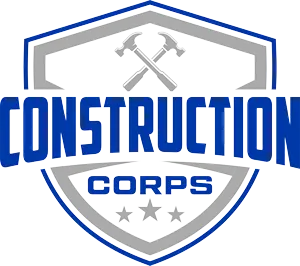
Living in the Sunshine State has its perks, but it also comes with unique challenges, particularly when it comes to mold. Florida’s warm and humid climate creates the ideal conditions for mold growth, making mold protection a top priority for homeowners.
Mold remediation is a separate license to a General Contractors license, even those who have the higher Certified GC license and thus are generally more experienced, still can’t do mold remediation work without a mold remediation license, but they can point you in the right direction of experienced mold remediation companies you can trust. A good GC will also know the extra mold protection that can be included in the construction part of your job and will offer those things as options.
Florida’s high humidity levels and frequent rain provide an environment where mold can thrive. Mold spores are ubiquitous, and when they find moisture and warmth, they can rapidly grow into a significant problem. Mold not only damages property but can also pose serious health risks to occupants, especially for those with allergies or respiratory issues.
Mold protection in Florida involves proactive measures to prevent mold growth and efficient mold remediation when it occurs. These processes require a deep understanding of the climate, building materials, and construction techniques unique to the region.
1. Licensing and Certification: Ensure that the General Contractor is licensed and insured as well as the mold remediation companies they suggest could help you with your home. Ask for proof of license numbers and check online whether that license is under the name of the contractor/ mold remediation expert you are talking to, to know it is valid.
2. Experience: Choose a contractor and mold remediation company who has experience working in Florida’s climate and is familiar with the specific challenges posed by the state’s weather conditions. Local knowledge is essential for effective mold prevention and remediation. Owner of Construction Corps, Matt Thompson started construction work in Florida in the 1990’s and makes a point to keep up-to-date on all new, as well as proven techniques and materials he can incorporate into the construction portion of the work to help protect your property. Although no absolute guarantees can be made, using a professional and experienced GC will ensure the work is done to the highest standard which should hopefully mitigate a future mold infestation into your apartment building/ home/ office etc.
3. Insurance: Confirm that the contractor as well as the mold remediation company have valid and current insurance.
4. Mold Testing and Inspection: A GC, no matter how experienced should only inspect mold if they have a mold remediation license, if a company says they do mold remediation and cannot produce the correct license, stay away.
5. Comprehensive Services: Look for a contractor who works with other industry professionals and can suggest a range of trusted companies they work with that might help in mold prevention, some contractors sub-contract to inexperienced companies or even worse to companies or people who aren’t licensed themselves to do that particular trade, again always look up the companies your GC recommends making sure of valid licenses and insurance as well as reviews online, which will help guide you. With Construction Corps you can be assured we will never suggest a mold remediation company or AC company who isn’t licensed.
6. Eco-Friendly Practices: Opt for a contractor who aims for eco-friendly practices, it is not always possible, but someone who prefers to use more natural methods and less chemicals whenever possible is healthier for you and your family overall.
